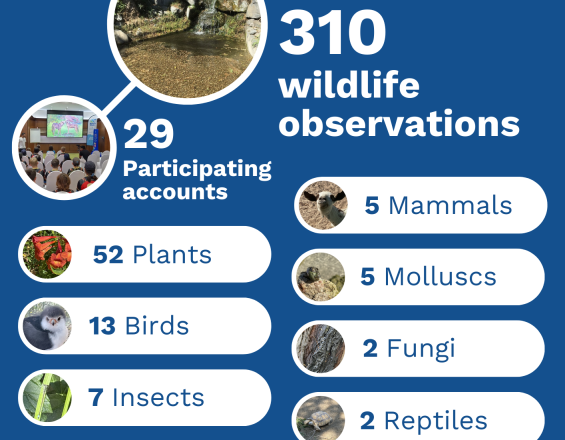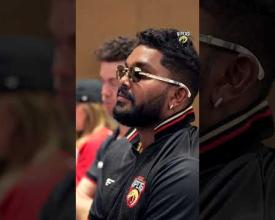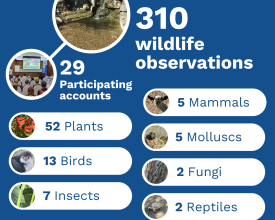

Global biodiversity is in decline, including in the Middle East. Historically, there have been limited wildlife observations in the UAE, so this event aimed to boost the number of national recorded observations.
Desert Vipers – a cricket franchise playing in the ILT20 league in the UAE – undertook a BioBlitz at their team hotel, JA The Resort, with Nature Wave and students from Jebel Ali School. The event lasted 90 minutes, with groups recording species at three locations on-site at the hotel using iNaturalist, competing against each other to record the most species.
The hotel uses treated wastewater to create a stunning area for its guests, cultivating several dozen irrigated plant species. It is also situated next to the sea, meaning there are a range of different habitats, so this solution aimed to understand in greater detail how many species were being supported by the site.
In total, 97 species were recorded over 310 observations, and all parties involved had a superb time, learning more about nature and biodiversity.
Impacts
The BioBlitz generated several positive impacts across environmental, social, and economic areas.
Firstly, it contributed to the UAE’s national nature records, adding valuable information through recording 97 species and 310 observations. This information is freely available, and so can be used by anyone to understand more about the different types of nature in the region. In addition, publishing the case study on social media and online to hundreds of thousands of followers, and using international cricket stars, emphasised that nature should be prioritised, and showed audiences the special importance of nature in Dubai.
Secondly, it included 29 participants from a local school, hotel, and sports team, including international cricket stars. Bringing diverse stakeholders together showed how actors can work together to enhance nature, and connect with each other in the process. Participants learnt more about nature in the region, boosting their knowledge and mental wellbeing through spending time in nature.
Finally, it served as a case study for the immense biodiversity of JA The Resort, both naturally (at the beach) and artificially (through wastewater treatment providing irrigation). Publishing the information online as a case study and using it in marketing will lead to an enhanced reputation as a more sustainable destination for sports teams and holidaymakers, and thus increased revenues.

